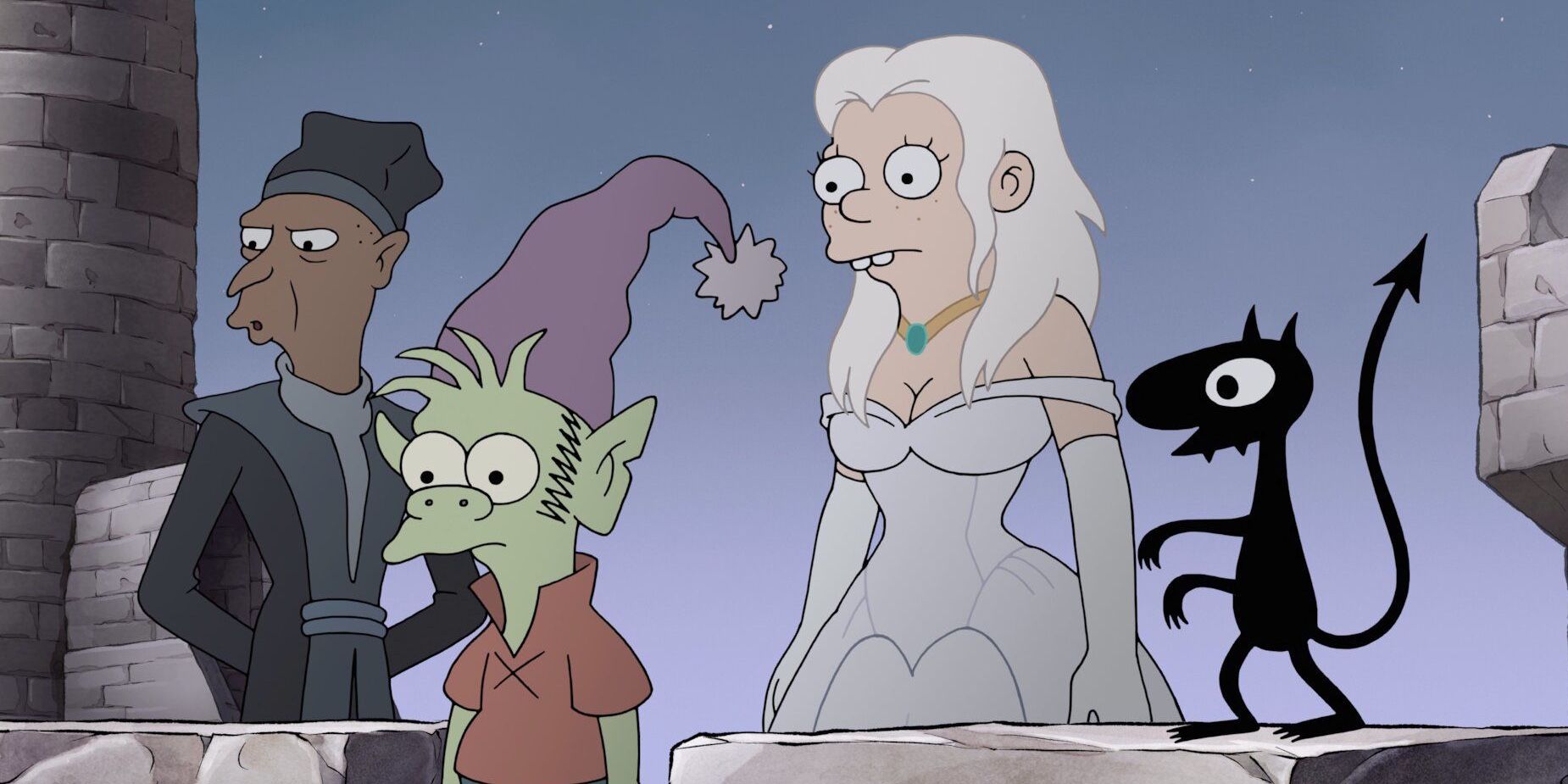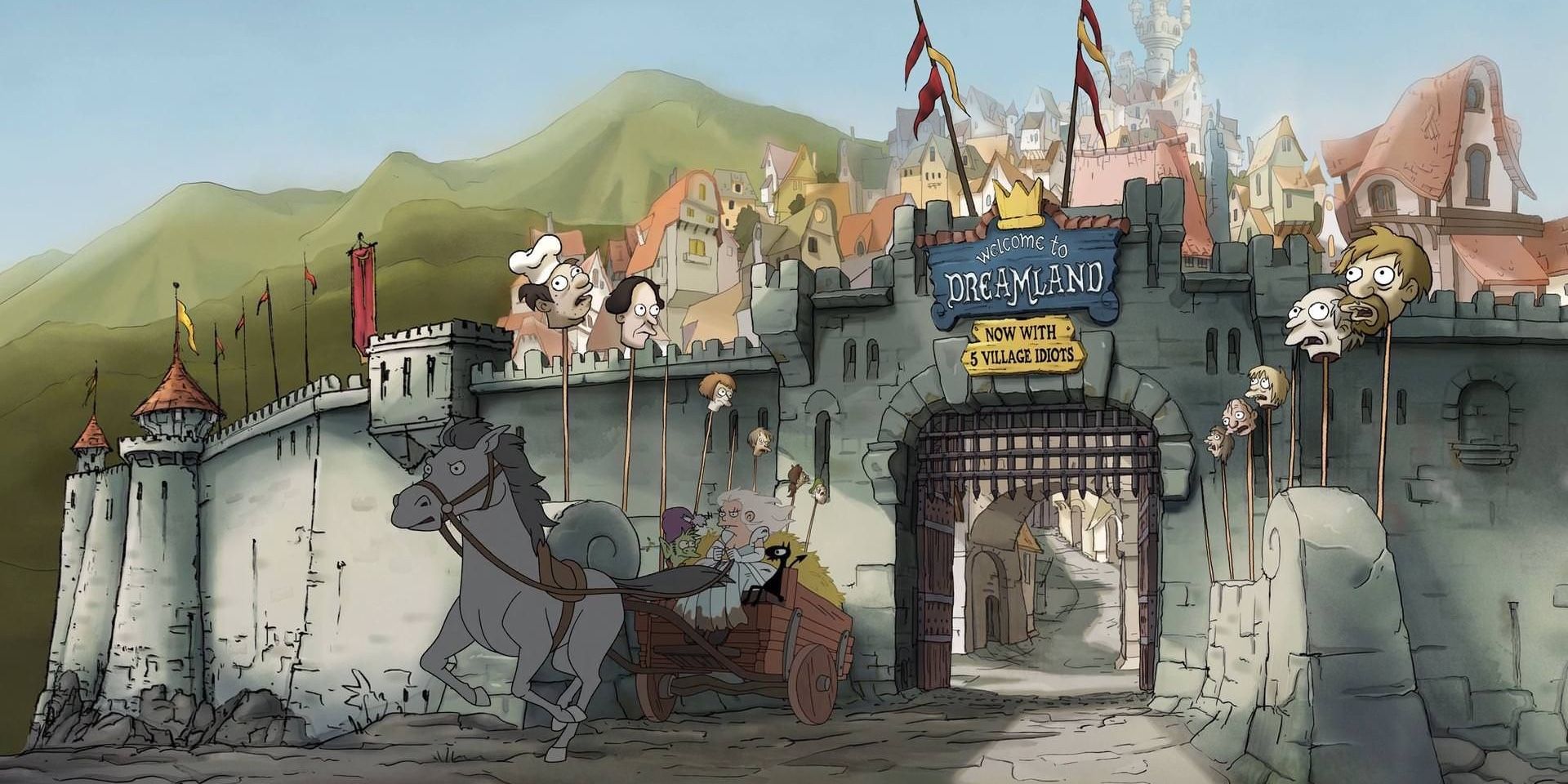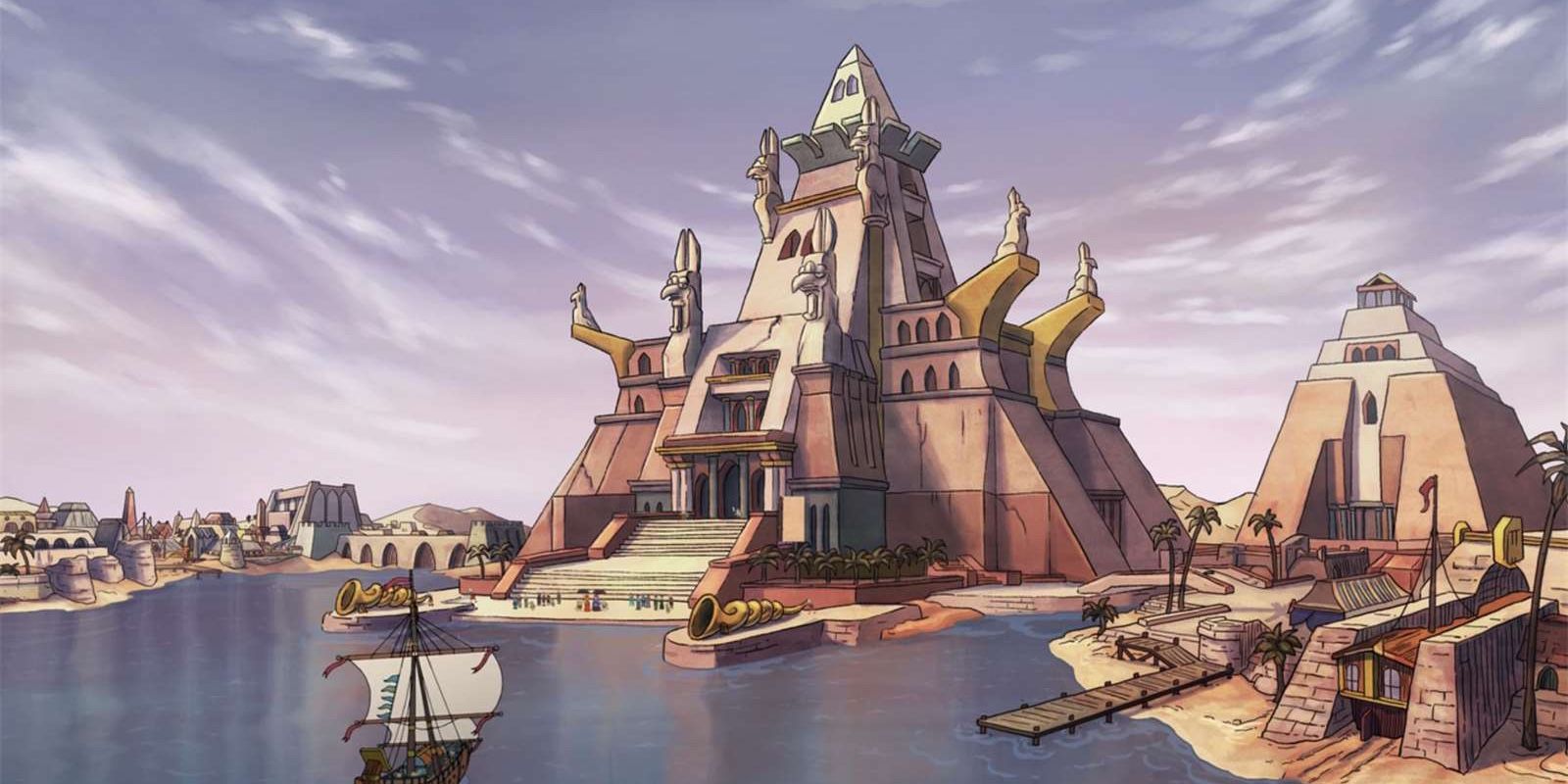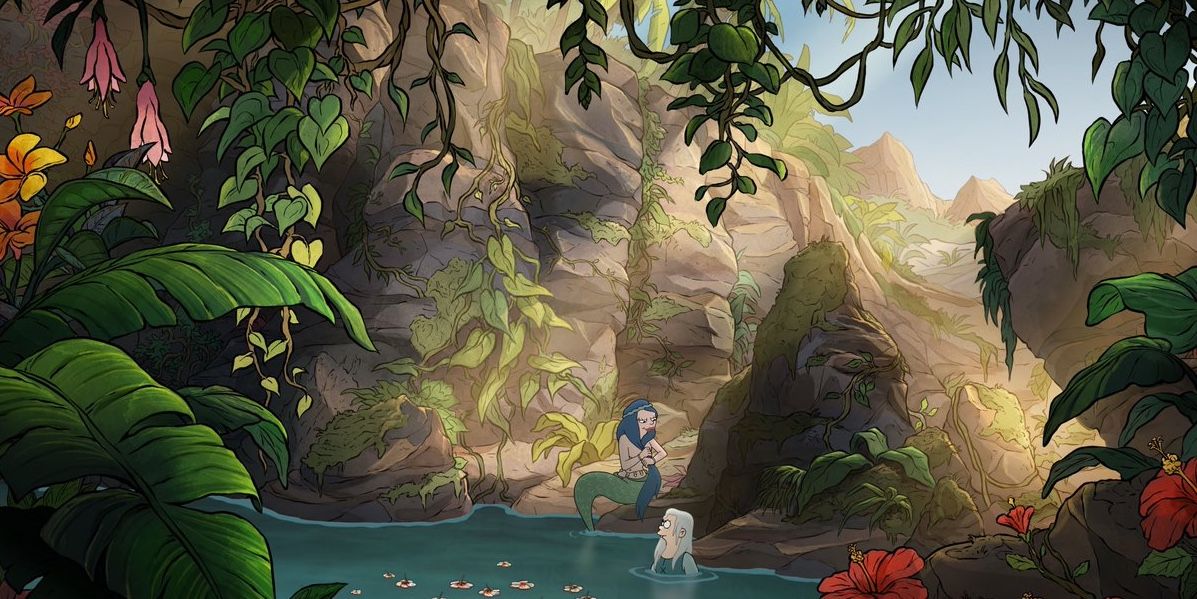Disenchantment is Matt Groening’s most recent animated television show. His first success, The Simpsons, takes place in the present, and the cult classic, Futurama, takes place in the future. Subsequently, the decision to now make a television show that takes place in the past does seem a bit like a perfectionist’s attempt to complete a triad.
From the start of the first season, it was obvious that Disenchantment’s main advantage to its predecessors was its stunning animated visuals of the fantastical far-off Dreamland. By the end of the first season, it felt like aesthetic appeal might be the show’s only advantage. However, with each new season, Disenchantment seems to improve and figure out just little a bit more of what it wants to be. It isn’t comparable to The Simpsons or Futurama, but this might be because Disenchantment has become something entirely different.
It is obvious that Disenchantment had a number of issues in its first season. The first two episodes are continuous, but the next five were basically all filler, and only very loosely related to the previous ones. A character would now and again reference a detail from another episode, but for the most part they were stand-alone. What is especially disappointing is that the majority of these episodes also share the same general premise. Bean, Elfo, and Luci are drunk or about to be drunk, and as a result of their drunkenness, they do something to disrupt the kingdom and upset Zog.
Another issue was that the three main characters were not especially interesting at this point, and they all felt like a jumble of characters from Groening’s other shows. Bean (Abbi Jacobson) appeared to be an interpretation of what Leela might be like if she drank as much and as often as Homer. Elfo (Nat Faxon) felt like a discount Fry, if Fry complained as much as Milhouse, and Luci (Eric André) seemed pretty much the same as Bender. Elfo’s unrequited interest in Bean felt like a cheap rip-off of Fry and Leela, and all in all the show seemed like it just wanted to be Futurama. It felt as though the creators were given the opportunity to make a show but had no idea what the show was going to be, and so they just went with ideas that had worked for them previously.
It doesn’t sound like a compelling start to what could become an incredible show, but The Simpsons actually came about in a fairly similar way. Groening was going to pitch one idea, but just before his meeting, someone else pitched a very similar idea that was not well received. On the spot, Groening changed his pitch to a story about a middle-class family, using his family’s names as the character names. He chose an anagram for ‘brat’ in place of his own name. This pitch was very well received, and The Simpsons then ran as a short on The Tracey Ullman Show for some time before becoming its own show. And the first three seasons of The Simpsons are virtually unrecognizable from what the show would be when it was at its height.
The second season of Disenchantment does however rectify many of season one’s mistakes. The first few episodes are full of creative concepts about the other kingdoms and the afterlife. Bean visits Maru with her mother, and later Hell with Luci, both of which are distinctly stylized and incredibly visually interesting. These episodes are much more thought-provoking than they are comedic, and they seem to be this way on purpose.
In the vein of character development, Elfo becomes more sarcastic, bitter, and passive-aggressive, effectively making him much more entertaining to watch than the innocent, child-like character he was in season one. Bean is still a drunk, but she starts to take more responsibility for herself and becomes much less self-involved. Disenchantment also seems to be actively trying to avoid the representational mistakes present in The Simpsons and Futurama. Futurama, of course, is leaps and bounds ahead of The Simpsons, but even still, it was regularly sexist and homophobic. Bean is a valuable representation and helps combat both of these notions.
Luci is the first main character in any of Groening’s shows to be voiced by a person of color, but he doesn’t seem to be quite as valuable as Bean is. Where she is dynamic and unique, he is the most static character throughout the entire run of the show. At times, it almost feels as though Eric André is wasted in this role, as he is a talented comedian, but the character doesn’t really do anything so much as he is just there. One would think that André as a demon would have all the components of an entertaining character, but for whatever reason, Luci is yet to reach his full potential.
Season two, just like season one, has its filler. The beginning of the season starts out strong with regards to the mystery and the drama, but in the middle of the season are episodes following stories like Zog trying to give himself gout, and Elfo and Luci becoming roommates. The world of Disenchantment is so full of potential, and after season one and the start of season two, the audience is so much more aware of the potential. So, even though there are fewer filler episodes in this season, they feel so much more frustrating, because the audience knows that the show could be so much more.
With season two, pacing issues become obvious. The first half of the season feels like a conclusion to season one, and the second half of the season feels like it should be the introduction to season three. Although, one would only become aware of this if they watched all the episodes at once. But each season so far has come out over a year after the previous one. Thus, any person who watched the show as it came out, would certainly have a much worse viewing experience overall because season two doesn’t really have its own arc. Subsequently, despite how many aspects of the show are much better than they were in the first season, this season becomes the hardest to watch.
Season three is a drastic improvement over the previous two. The main characters develop, side characters develop, and the world develops. In 2018, when Disenchantment premiered on Netflix, Dreamland was a stunning and beautiful kingdom, and now, after having seen what else exists in this world, Dreamland is lackluster and mundane. In this season, Disenchantment finally commits to being distinct from the sitcom format, and as a result, none of the episodes feel like filler. Season three ends with Bean taking responsibility for herself and her kingdom, and for the first time, the audience is compelled, interested, and anxious to know what happens next.
The show seems to have solved the majority of the problems it had in season one, other than the fact that the show is not especially funny. And it does not seem like it is ever going to be as funny as The Simpsons or Futurama were. But if Disenchantment continues on this upward trajectory, it feels that the show has enough going for it that it maybe doesn’t even need to be. It seems that the audience has come to expect comedy from Groening, despite the fact that Futurama wasn’t that funny in its last few seasons, and The Simpsons hasn’t been that funny in a decade (maybe two depending on who you ask).
But Futurama was at its best when the episodes were emotional and heartbreaking. The creators of Futurama have even stated that they had more ideas for more compelling and interesting and fundamentally sad episodes, but often, they couldn’t make them because they weren’t funny. Clearly, the creators of Disenchantment can tell a mysterious and dramatic and emotional story, and the show has the potential to evolve into something that is predominately focused on these types of plot lines. Admittedly, the show is yet to have done one great season, but even The Simpsons didn’t manage that until season four.





